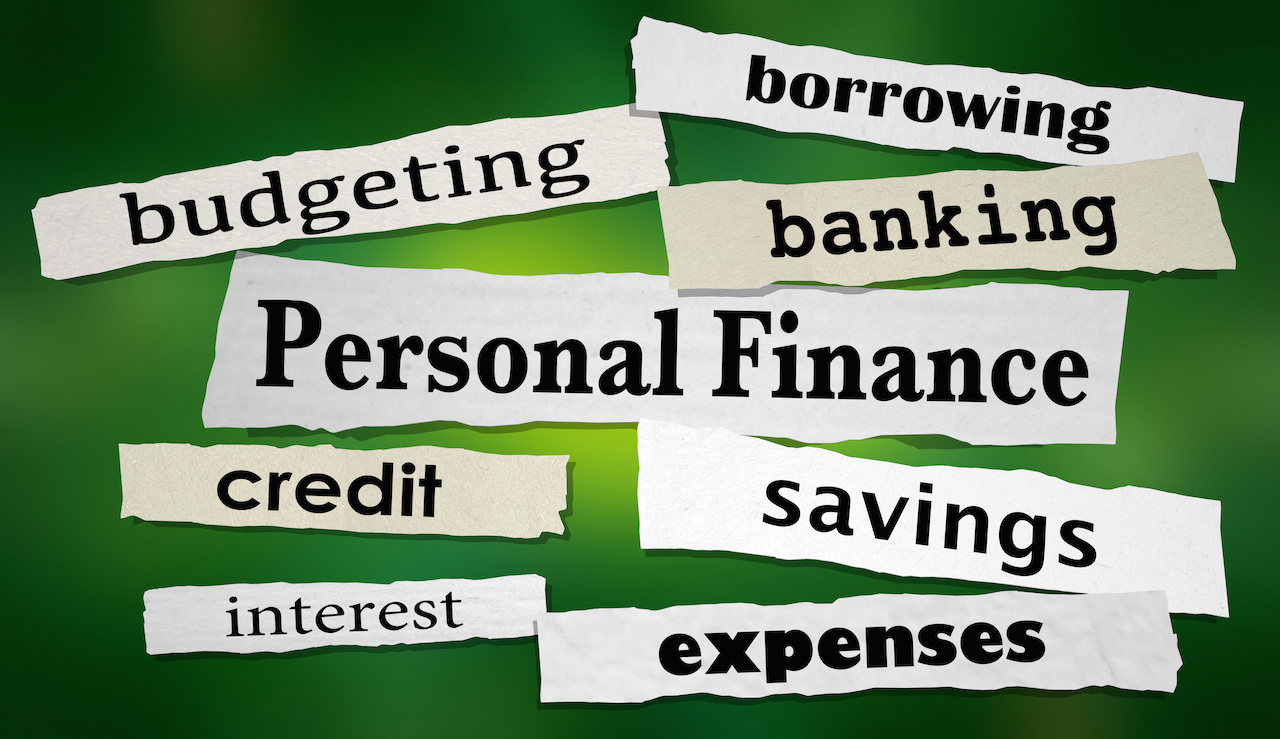EDITOR’S NOTE: This article has been updated for 2019.
EDITOR’S NOTE: The offers mentioned in this article are expired and are no longer available.
You have a wide range of options to get unsecured loans in 2019. Once only available from brick-and-mortar banks, you can now research rates, get fast quotes and complete the application process online in mere minutes. Whether you’re looking for debt consolidation, loans for people with bad credit, loans for people with average credit or loans for excellent credit with low annual percentage rates (APRs), there’s a lender out there to meet your needs. Read on to learn more about the top unsecured personal loans and to find out which lender might be right for you.
Featured Unsecured Personal Loan Providers
To select our featured personal loan providers, we looked at their unsecured loan rates, whether they offer small loans or large loans and how they treat borrowers with poor credit. Some, like Avant, offer solid rates even if you have a blemished credit history. Others stand out for the way they lend you money.
Avant
We appreciate the simplicity of Avant’s process. Start by checking the loan options available with Avant’s online tool, which performs a soft credit check that may not impact your credit score. It only requires a few minutes of time and simple personal information such as your name, address, date of birth, Social Security number and monthly income. You can get loans anywhere between $2,000–$35,000, with repayment terms from 24 to 60 months.*
Avant may be ideal if you have average credit and an annual income of at least $40,000. The company offers guidance to help you pay off debt faster.
* Example: A $5,700 loan with an administration fee of 4.75% and an amount financed of $5,429.25, repayable in 36 monthly installments, would have an APR of 29.95% and monthly payments of $230.33
PersonalLoans.com
PersonalLoans.com operates differently than the other lenders mentioned here because it works as a referral site, not as a direct lender. This makes the information process less transparent by making it difficult to figure out the fees and APRs as easily as you would with a direct lender. On the positive side, PersonalLoans.com opens up more options if you’re interested in short-term loans or have fair to average credit.
Loan amounts as high as $35,000, loan terms as short as 90 days to as long as 72 months, and no prepayment penalty make this a solid bet if you want quick access to cash and a fast repayment term.
Lending Club
What makes Lending Club stand out is its peer-to-peer lending model. Instead of relying on traditional funding from a bank or financial institution, Lending Club connects you with individual investors who fund your loan. This lender was actually among the pioneers of online lending, which gives it credibility and reliability.
You can apply for loans up to $40,000. Repayment terms range from 36 or 60 months, and most borrowers receive their money as fast as three days. Lending Club charges an origination fee of 1%–6% of the loan amount.
To apply, complete a preliminary application online before Lending Club performs a soft credit check. Upon approval, Lending Club offers several different types of loans with varying APRs, terms and monthly payments. Once you choose a loan, Lending Club completes detailed applications and lists the loan request on its website for investors to view. To receive the requested amount, investors must fund at least 60% of your loan. Once your loan receives funding, Lending Club performs income and identity verification.
Our Picks for the Top Unsecured Personal Loan Providers
In selecting our highly rated personal loan providers, we looked at lenders that provided fair terms, relatively low rates and simple application processes. Continue reading to discover more about why these lenders stand out and to determine if they’re a good match for you.
Top Overall
Easy access to funds, streamlined application processes, and high borrowing limits make Lending Club, Wells Fargo and Prosper shine. Each of these highest-in-class lenders has its own strengths.
Lending Club
Lending Club’s peer-to-peer lending model provides competitive rates, transparent terms and widespread availability. Lending Club performs a soft pull in the initial stage of the application process, so you can check out the rates that you qualify to receive and it won’t impact your credit score. Other positives include strong borrowing power of up to $40,000 and a lenient minimum credit score of 600. Additionally, you can change your payment due date online, which offers flexibility.
On the downside, Lending Club gears its loans to good credit borrowers with low debt-to-income ratios. If you’re near the top of your credit limit on all your cards and loans, this may not be the right option for you. Additionally, Lending Club charges a fee for making payments by check.
Wells Fargo
Wells Fargo offers personal loans for $3,000–$100,000, with a fixed interest rate ranging from 7.24%–24.24%, based on your creditworthiness. It doesn’t charge any origination or prepayment fees and offers discounts if you have a Wells Fargo checking account. Repayment terms range from 12–60 months.
If you prefer completing a loan application online, this might not be a good fit for you. Only current customers can apply online. If you prefer applying for a loan face to face, this is a great option. Because the loan comes from a bank, you have the option to talk directly to a person and visit a local branch to complete the application process. Wells Fargo’s “Debt Pay Down Solution” lets you consolidate high interest debts to pay off your balances sooner than you would otherwise be capable of doing.
Prosper
If you want to have the added benefit of managing your loan with an app and you have good credit and a solid income, Prosper could be a great match for you. Prosper has a good record — since it began offering loans in 2006, Prosper has originated over $8 billion in loans.
Prosper loans require a minimum credit score of 640, but they offer loan amounts of $2,000–$40,000. It usually takes between three and five business days to receive the money, and you can choose from three- or five-year repayment terms. Prosper charges a 2.41%–5% origination fee.
The loan process includes an online personal loan application and a soft credit check based on your credit information on file with Experian, the credit bureau that partners with Prosper. You then receive loan options with varying loan terms, fees and interest rates to choose the one that effectively meet your needs.
Ideal for Those with Excellent Credit
If you have excellent credit, you also have many different options to get access to the funds you need. Before you sign on for a personal loan, research other alternatives, including a 0% interest credit card or a home equity line of credit, which may cost less in the long term.
LightStream
LightStream has high standards, but it also looks beyond your creditworthiness to what you’re actually buying with the money to determine your interest rates. For example, the APR rate of the loan if used for home improvement might differ than the rate for a loan with the intended use of a major purchase, like a car or boat. All LightStream loans range from $5,000-$100,000 with terms as short as two years to terms as long as 7 years.
To be considered for a LightStream personal loan, you need a credit score of 680 or better. Although the lender doesn’t provide a standard for the minimum gross income, minimum credit history or the maximum debt-to-income ratio, these loans are designed to provide qualified consumers with low-interest, unsecured loans. This means you should have a strong credit history, ideally with at least five years of history and a score of 720 or greater. Other helpful attributes include having several different types of credit, minimal payment delinquencies and a low balance on your credit cards and loans.
SoFi
When it reviews your loan application, SoFi considers your credit score, but it also considers your payment history and your earning potential, which makes this a great option if you’re a recent grad who has a thin credit file that might exclude you from some loans. SoFi offers personal loans and mortgages, but it’s well-known for its student loan refinancing.
Although SoFi doesn’t publish a minimum credit score or annual income, average borrowers have at least good credit and an annual income of $114,000 or more. Loan amounts range from $5,000–$100,000 with repayment terms extend from three to seven years.
SoFi also provides a unique community experience to its borrowing community by holding social events and career services and providing an unemployment protection program that pauses your loan payments for up to 12 months while you find a new job.
Earnest
Even if you have a good credit score, having a short credit history can harm your chances of getting a loan with many lenders. Earnest works differently by using thousands of data points and a personalized underwriting process to look at your history and future earning potential. Although these loans are geared toward applicants with minimal credit, this lender looks for borrowers with records of saving, small amounts of debt, no delinquencies and income that’s high enough to support the loan.
Earnest offers loans from $5,000–$75,000 and repayment terms of three to five years. Additionally, you have the option to give Earnest input about your preferred payment amount and change your payment due date.
Ideal for Those with Average/Fair Credit
What’s a good credit score? Most lenders define “good” for themselves. The following list provides a general idea of how credit scores typically break down:
- Excellent: 750+
- Good: 700–749
- Fair: 650–699
- Poor: 600–649
- Bad: below 600
Having a lower credit score limits your options and usually means that you pay more in interest to get an unsecured loan because lenders see you as an increased risk. You can opt for a secured loan, which uses an asset as collateral, or obtain a cosigner with good credit to help qualify you for a better APR. Alternatively, check out some of the top lenders for borrowers with less-than-perfect credit: Avant and Peerform.
Avant
Not only does Avant accept applicants with less-than-perfect credit, but it also offers fair terms and a transparent platform so that you know exactly what you’re getting and how much it costs. Avant gears its loans to borrowers with lower credit scores who want to consolidate their debt. To qualify for a personal loan, you may need a credit score of 580 or better.
The online application is simple, and you may receive funds as soon as the next business day after approval, but it can take up to one week if you need to submit additional documentation to verify your identity and income. Avant charges up to 4.75% administration fee.
Peerform
Like Lending Club, Peerform operates as a peer-to-peer lender. It provides loans from $4,000–$25,000. To obtain a personal loan from Peerform, you must have a minimum credit score of 600 and a maximum debt-to-income ratio of 40%, which is on the high end. Most lenders set their maximums closer to 36% or lower.
Peerform charges an origination fee of 1%–5% of the loan amount. Additionally, you can expect to wait three days to two weeks to receive funds. Peerform reports loan payments to the credit bureau TransUnion, so if you make your payments on time, it helps establish a positive credit history.
The application process is simple: register, review and select personal loan amounts and terms that work well for you. The loan is listed on a platform for investors to evaluate and opt to fund. Peerform verifies your identity with valid military photo identification, a driver’s license, a passport or government identification.
What Is an Unsecured Loan?
The top personal loans have low interest rates, no hidden fees and a variety of options for flexibility. Whether you’re looking for unsecured business loans or unsecured personal loans, the key is to shop around before you commit. Get estimates from two to three lenders to find the one with the most competitive rates and favorable terms.
Secured vs. Unsecured Loans
There are two basic types of loans: Secured and unsecured. Secured loans rely on an asset such as a house or car for use as collateral. Lenders often offer lower APRs and accept borrowers with lower credit scores for secured loans because there is less risk for the lender. If you don’t pay your bill, the lender can seize the asset used to secure the loan and sell it to recoup the losses from your nonpayment.
Unsecured loans don’t use any collateral. Instead, they rely mostly on your creditworthiness and income for approval. For this reason, the higher your credit score and lower your debt-to-income ratio are, the better chances you have to obtain an unsecured loan because these elements show you’re less of a risk to the lender.





















